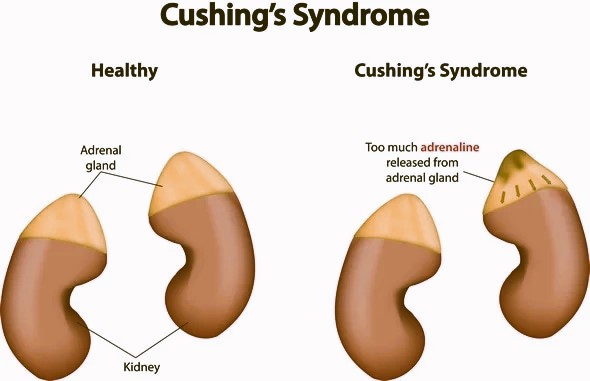Cushing Syndrome: Causes, Symptoms, and Treatment
Learn about Cushing Syndrome: its causes, symptoms, and treatment options. Discover how to manage this condition and improve your overall health and well-being.


Understanding Cushing Syndrome: Causes, Symptoms, and Treatment
Cushing syndrome, also known as hypercortisolism, is a rare hormonal disorder that occurs when the body is exposed to high levels of the hormone cortisol for an extended period. This condition can be caused by various factors and can lead to a range of symptoms. In this article, we will explore the causes, symptoms, and treatment options for Cushing syndrome.
Causes of Cushing Syndrome
Cushing syndrome can be caused by either excessive production of cortisol by the adrenal glands or by the prolonged use of corticosteroid medications. The most common cause is the use of corticosteroids, such as prednisone, for the treatment of conditions like asthma, rheumatoid arthritis, or lupus. Other causes include:
Pituitary gland tumors: These tumors, known as pituitary adenomas, can cause the pituitary gland to produce excessive amounts of adrenocorticotropic hormone (ACTH), which stimulates the adrenal glands to produce cortisol.
Adrenal gland tumors: Tumors in the adrenal glands can lead to overproduction of cortisol.
Ectopic ACTH syndrome: In rare cases, tumors in other parts of the body, such as the lungs or pancreas, can produce ACTH and cause Cushing syndrome.
Symptoms of Cushing Syndrome
The symptoms of Cushing syndrome can vary from person to person, but some common signs include:
Weight gain, particularly in the face, neck, and upper body
Thin, fragile skin that bruises easily
Purple stretch marks on the abdomen, thighs, and breasts
Slow healing of wounds
Muscle weakness and fatigue
Increased thirst and urination
High blood pressure
Irregular menstrual periods and fertility problems in women
Depression and anxiety
Treatment Options for Cushing Syndrome
The treatment of Cushing syndrome depends on the underlying cause. If the condition is caused by the use of corticosteroid medications, the dosage may be gradually reduced or alternative medications may be prescribed. In cases where the syndrome is caused by a tumor, surgery may be required to remove the tumor.
If surgery is not an option or if the tumor cannot be completely removed, other treatment options may include:
Radiation therapy: This treatment uses high-energy beams to destroy tumor cells.
Medication: Certain drugs can be used to block the production of cortisol or inhibit its effects.
Bilateral adrenalectomy: In severe cases, both adrenal glands may need to be surgically removed, which will require lifelong hormone replacement therapy.
It is important to note that the treatment approach will vary depending on the individual and the severity of the condition. Regular follow-up appointments with a healthcare professional are crucial to monitor progress and manage any potential complications.
In conclusion, Cushing syndrome is a rare hormonal disorder that can have various causes and lead to a range of symptoms. Early diagnosis and appropriate treatment are essential in managing the condition and improving the quality of life for individuals affected by it.
